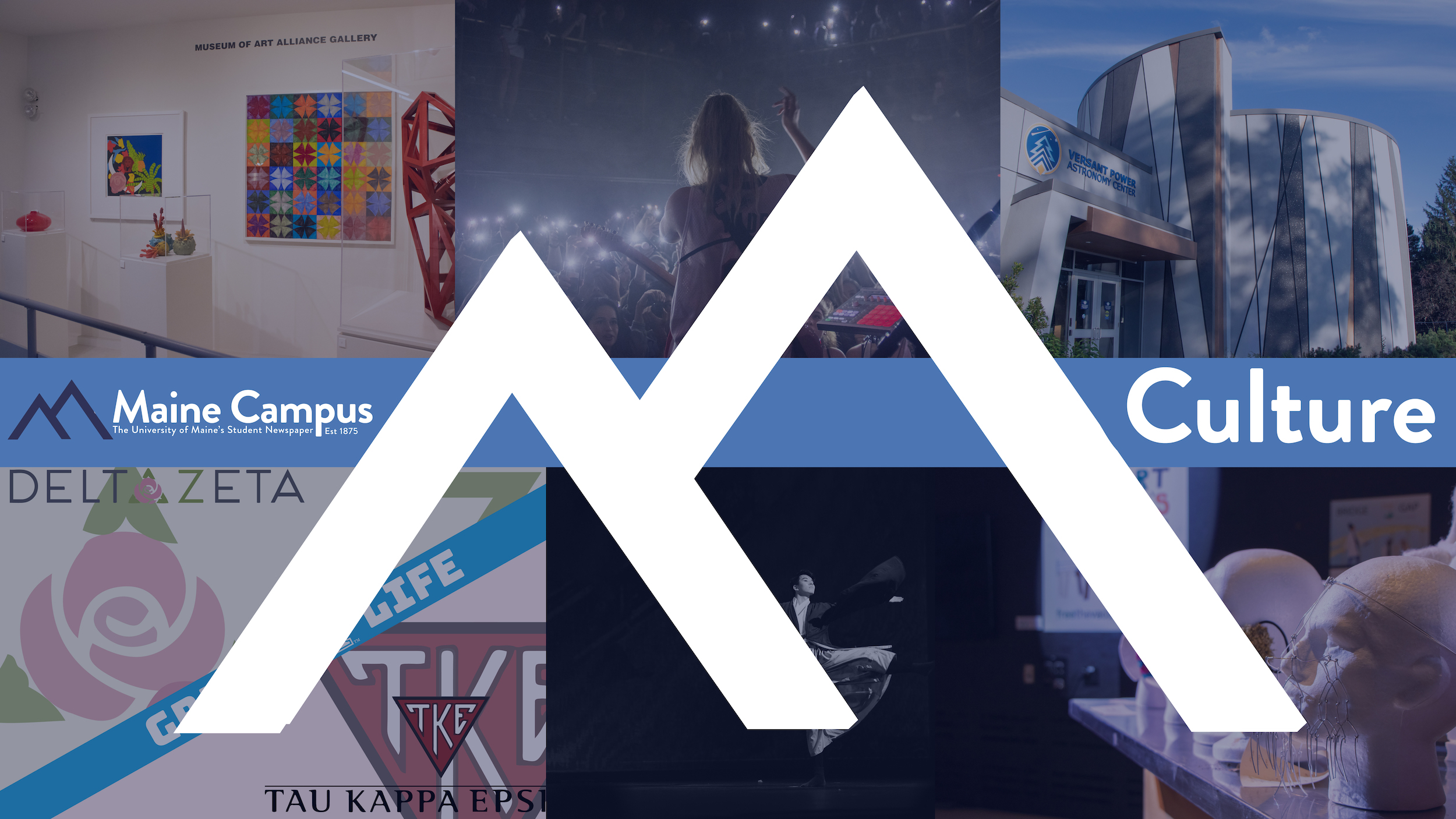The University of Maine’s Foreign Language Tables are a weekly meeting open to everyone looking to engage with a foreign language. This includes students and faculty members as well as community members. At the tables the conversation is held in the designated language. The tables are held during the school semester, starting the second week of classes.
There are currently four tables a week: German, spoken on Wednesdays from 1 to 2 p.m.; French, spoken on Wednesdays from 2 to 3 p.m.; Spanish, spoken on Thursdays from noon to 1 p.m. and Italian, spoken on Fridays from 2:30 to 3:30 p.m.
Members of the community are encouraged to come practice the language or to simply listen. The tables are a place to engage with the language regardless of skill level.
Robert Klose is a UMaine Honors College faculty member. He has been speaking German for around 30 years. He studied as a foreign exchange student in Germany when he was in college.
“I didn’t want to ever lose it,” Klose said. “I worked so hard to get it.”
At the German table Klose is joined by the host Gudrun Keszöcze, who teaches German at UMaine. She has been hosting the German language table for two years. The table itself has been open for decades with Keszöcze saying it was open when she attended the college in 1997.
Also in attendance was Amanda Dodge, the president of UMaine’s German Club. She began learning the language in high school.
“There was a lot of German in the area,” Dodge said. “And I didn’t want to take Spanish.”
The table isn’t limited to only in-person conversations. A student who is studying in Berlin joined the table via Zoom, which is a great way for students to participate off campus.
A similar scene took place at the Spanish table.
Brad O’Brien is a faculty member in the TRIO Student Support Services and first-time attendee of the table. O’Brien was inspired to learn Spanish from his boss, who is also learning the language, and recommended the table to him.
“Listening to people speak is actually a way better way of learning than using an app,” O’Brien said.
As a first-time attendant, O’Brien began introducing himself in Spanish. With the help of the table’s host Maria Sandweiss he explained where he works and what he does. He did so mostly in Spanish, having to switch back to English with words he was unsure about or to clarify what he was trying to say. Sandweiss is a Spanish instructor at UMaine as well as the advisor of the Spanish Club. She has been teaching here since 1995.
O’Brien began learning Spanish through Duolingo, a popular language-learning app and website. While useful for learning basic words and sentences he finds more can be learned when actually speaking and hearing the language.
“I know a lot of words and can follow a lot of conversation, but when it comes to forming a sentence. Apps don’t teach the little words that we use in conversation that make it a conversation, like ‘but’ or ‘of,’” O’Brien said.
The table also welcomes those who are not affiliated with the college. Maine resident Kathleen Carolin attends the club to retain the language and ask questions. After sitting down she began to talk with Sandweiss about a new word she had learned from a poem and then later heard on a television show.
“I live in Central Maine and no one speaks Spanish,” Carolin said. “I come here so I don’t forget.”
The tables are open to all levels of fluency. People are free to come in and simply listen, or to speak if they feel comfortable. At the German table, Keszöcze and the exchange student held most of the conversation, with others occasionally jumping in. The others around the table kept their eyes on whoever was speaking, following along with what was being said.
At the Spanish table the three attendants spoke casually. Sandweiss asked questions to prompt the others to speak. She encouraged them to answer in Spanish and offered help with words when they needed it.
The table doesn’t just serve as a learning tool. It also provides a much needed social aspect.
“It’s exciting to meet new people, both professionals and students,” Sandweiss said. “You make new friends.”
While the tables are during class hours and thus unavailable for some, there are other ways to engage with foreign languages on campus. There are classes for languages within the Modern Languages and Classics department. For a more casual engagement language clubs are an option. The Spanish club meets on Mondays from 5 to 6 p.m. It has around 22 members, according to Sandweiss. These clubs offer more cultural activities and involvement, as well as provide an opportunity to meet new people.










